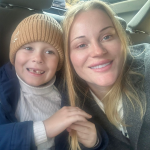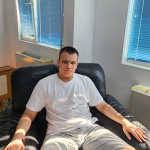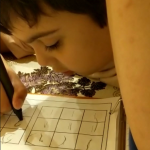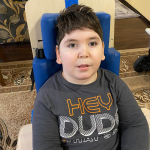An Autistic Child Fears the Clinic: How to Help?
Statistics show that about 50% of young children are afraid of visiting doctors. This number is likely much higher among children with autism spectrum disorders, as they struggle with changes in familiar routines, fear unfamiliar people, or react negatively to physical contact.
However, regular doctor visits are essential for these children to quickly identify and address health issues. Since such visits are an important part of a child’s life, it is crucial to work with them consistently to reduce their anxiety before the next appointment. Since autistic individuals may fear medical institutions for various reasons, different approaches can be used to address this fear.
Preparing for a Doctor’s Visit
One of the biggest challenges for autistic children is visiting new places. A medical facility can be intimidating, so it is helpful to visit the clinic in advance for a “familiarization tour.” Spending just a few minutes there allows the child to get used to the sounds, lighting, and presence of other people, potentially reducing anxiety.
Role-playing can also be effective, especially before a dentist visit. Studies show that 45% of autistic children take medications that may affect dental health, and many dislike the taste of toothpaste or struggle with using a toothbrush. Role-playing games can help prepare for a dental visit, which may otherwise be a stressful situation. At home, parents can act out a doctor’s visit, switching roles so the child can experience both being a patient and a dentist. This approach may help them feel more confident and at ease during the actual appointment.
Managing Changes in Routine
Another challenge is that a clinic visit disrupts the child’s daily routine, which can cause anxiety or even meltdowns. To prevent this, parents can use visual aids, as autistic children often process visual information better than verbal instructions. Picture cards illustrating a typical doctor’s office and the steps of a medical appointment can help the child visualize what to expect. This method may reduce stress and even encourage them to ask additional questions.
A More Comprehensive Approach: Cellular Therapy
While preparation can help ease a child’s anxiety, a more decisive step would be to address autism spectrum disorders and their symptoms directly. One innovative, effective, natural, and safe method is cellular therapy.
This therapy involves the transplantation of stem cells, which can transform into healthy replacements for damaged cells. This “swap” helps the brain and nervous system function properly, reducing or even eliminating autism symptoms. Since the transplantation provides both rapid and long-term effects—often lasting a lifetime—additional autism management strategies become significantly more effective.
The reliability of cellular therapy is well-documented, and experts believe that in the future, it could become the primary method for treating autism, not just its symptoms. Leading clinics worldwide, including the Mardaleishvili Medical Center, offer this treatment under optimal conditions. The center has highly experienced doctors and cutting-edge equipment, ensuring a top-tier transplantation process. Moreover, the cost of treatment is lower than in countries with more developed healthcare systems. Additionally, the center provides assistance in planning the trip and arranging accommodations during the rehabilitation period.
Undergoing cellular therapy at the Mardaleishvili Medical Center can help autistic individuals overcome their fear of clinics!
Autism Treatment Center Videos
Autism treatment with own stem cells
Cord blood association congress
International Quality Crown
Autism Treatment Reviews
Autism treatment with own stem cells
The story of Alessandro (6 years old)
Autism Patient Testimonial - Stem Cell Treatment
Clients Testimonials

Feedback from Igor, David’s father (12 years old) Read More

Feedback from Olga, Fedya’s mother Read More

Feedback from Natalia, Radomir’s mother (15 years old) Read More

Feedback from Esther, Samuel’s mother (8 years old) Read More

Feedback from Abibe, Selim’s mother (7 years old) Read More












